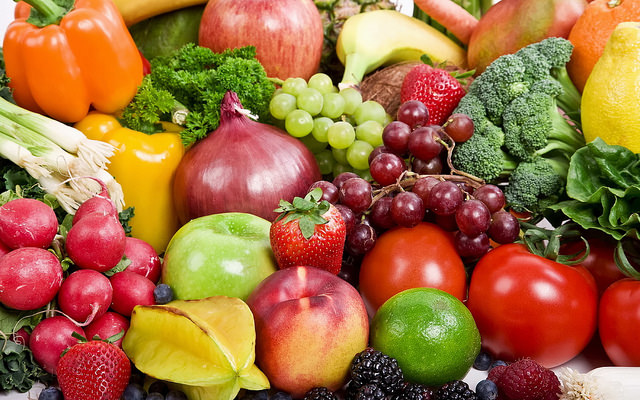Last Updated on Aug 18, 2025 by Happy Dieter
Not many people realize that a poor diet can lead to mental health issues such as anxiety and depression. The saying “you are what you eat” holds true, as both physical and mental health are essential for our bodies to produce the endorphins and other chemicals that make us feel happy, energetic, and optimistic. Unfortunately, the modern diet can damage the nervous system and contribute to these mental health problems. Here’s a closer look at the ways nutrition affects anxiety and depression.
Key Takeaways
- Omega-3 fatty acids play a crucial role in mood regulation and can help alleviate symptoms of anxiety and depression.
- A diet rich in fruits and vegetables provides essential nutrients that combat stress and mood disorders.
- Magnesium is vital for serotonin production, which is necessary for maintaining a positive mood.
- GMOs and herbicides can disrupt gut health and lead to nutritional deficiencies that affect mental well-being.
- Sugar and food additives can cause inflammation and hormonal imbalances, exacerbating anxiety and depression.
1. Omega-3s
Numerous studies have shown that individuals who consume more omega-3 fatty acids have an increased volume of gray matter in brain regions responsible for mood regulation. This suggests that omega-3s can help relieve depression, anxiety, and other mood disorders. Including omega-3-rich foods like fish, flaxseeds, and walnuts in your diet can be beneficial for mental health.
2. Fruits and Vegetables
Consuming a diet rich in fruits and vegetables has been linked to a reduced risk of developing anxiety, depression, stress, and other mood disorders. Vitamins C and A, along with beta-carotene, are powerful antioxidants that offer numerous health benefits. Lycopene, a carotenoid found in high amounts in tomatoes, has also been shown to help treat depression. Incorporating a variety of fruits and vegetables into your diet is essential for managing depression and anxiety symptoms.
3. Magnesium
Magnesium is an essential nutrient that plays a critical role in the body’s normal cellular growth, blood sugar regulation, and many biochemical processes. It’s also necessary for maintaining normal muscle and nerve function. Importantly, magnesium is needed for the production and release of serotonin in the brain. Without adequate magnesium intake, the brain cannot properly release serotonin, which can lead to depression and anxiety.
4. GMO
In recent years, many countries have banned GMO foods due to their potential health risks. GMOs can negatively affect gut bacteria by promoting the growth of harmful bacteria and reducing the number of beneficial bacteria needed for mental health. Various studies have suggested that GMO foods should be avoided, and new research continues to emerge on their potential dangers.
5. Herbicides
Glyphosate, the world’s most commonly used herbicide, can cause nutritional deficiencies that lead to various health problems. These nutrients are essential for proper brain development, mood regulation, and toxin removal from the body. The widespread use of herbicides like glyphosate has raised concerns about their impact on mental health and overall well-being.
6. Sugar
Sugar consumption triggers a series of chemical reactions in the body that can cause inflammation and a host of other health problems. It can disrupt hormonal balance, weaken the immune system, and negatively affect gut bacteria and digestive health. Sugar, particularly fructose, is also a major contributor to obesity and can lead to insulin and leptin resistance, both of which are crucial for optimal physical and mental health. These imbalances can exacerbate depressive behaviors.
7. Food Additives
Artificial food additives, particularly aspartame, can be harmful to the brain and contribute to anxiety, depression, and other health issues. Artificial food colorings can also have a negative impact on mood. Avoiding these additives is an important step in maintaining good mental health and reducing the risk of mood disorders.
Conclusion: The Impact of Nutrition on Mental Health
Understanding the ways nutrition affects anxiety and depression is crucial for maintaining both physical and mental well-being. By making conscious choices about what we eat—focusing on omega-3s, fruits and vegetables, and essential nutrients like magnesium—we can support our mental health and reduce the risk of anxiety and depression. Avoiding harmful substances like GMOs, herbicides, sugar, and artificial additives is also key to preserving mental wellness.
FAQs
Q: How Do Omega-3s Help With Anxiety and Depression?
A: Omega-3s increase the volume of gray matter in brain areas involved in mood regulation, helping to alleviate symptoms of anxiety and depression.
Q: Can Eating More Fruits and Vegetables Really Reduce Anxiety?
A: Yes, fruits and vegetables are rich in vitamins and antioxidants that combat stress and support mental health, reducing the risk of anxiety and depression.
Q: Why Is Magnesium Important for Mental Health?
A: Magnesium is necessary for serotonin production in the brain, which is essential for maintaining a positive mood and preventing anxiety and depression.
Q: Are GMOs and Herbicides Harmful to Mental Health?
A: Yes, GMOs and herbicides like glyphosate can disrupt gut bacteria and cause nutritional deficiencies that negatively affect mental well-being.
Q: How Does Sugar Contribute to Anxiety and Depression?
A: Sugar can cause inflammation, disrupt hormones, and lead to insulin resistance, all of which can exacerbate symptoms of anxiety and depression.















